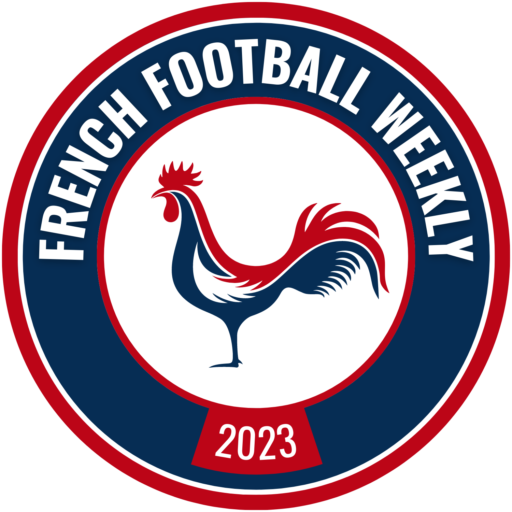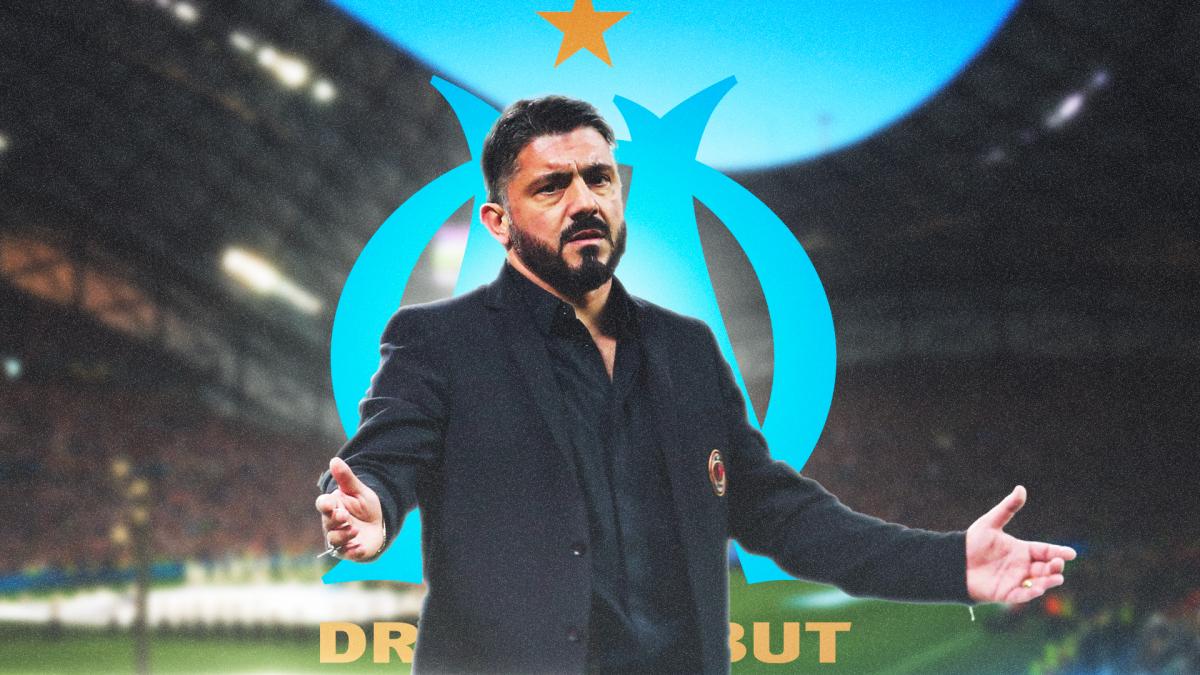While his name had been mentioned in recent weeks on the side of Olympique Lyonnais, to take over from Laurent Blanc (a tough task ultimately entrusted to Fabio Grosso), coach and former Italian player Gennaro Gattuso will finally settle down in another Olympic. Indeed, as we revealed to you exclusively on Tuesday evening, the Marseille management, still supported by the duo composed of Pablo Longoria and Javier Ribalta, has set its sights on the legend of AC Milan to heal the wounds of the Phocaeans, more never sick since the resignation of Spanish coach Marcelino, the intense clash with groups of Marseille supporters, the aborted departures of sports management and the humiliating slap received at the Parc des Princes against Paris Saint-Germain in Ligue 1 (4 -0). Ringhio (his nickname, which means “growl” in Italian) is also expected this Wednesday in Bouches-du-Rhône to sign a two-season contract – the second year of which is optional.
Rather mixed experiences
Officially becoming a coach in 2013 in Switzerland at FC Sion, where he had finished his professional career a few months earlier, Gennaro Gattuso took time to definitely take a long-term bench. After short stints at Palermo in Serie B and OFI Crete in the Greek Super League, the former international joined the AC Milan youth team and finally the first team in November 2017, succeeding Vincenzo Montella. This first (real) experience as a coach was one of the most positive in the career of the young Italian tactician. A real firefighter on duty at San Siro, he managed to perfectly begin an interesting transition before the real revolution under Stefano Pioli. He was able to qualify the Rossoneri in the middle of a crisis and rather weak for the Europa League, during his second season in Milan, even competing for tickets for the Champions League until the last minute of the 2018/2019 campaign during which the Diavolo Milanais finished in 5th position, just one unit behind Inter Milan ranked 4th that year, with a squad whose leaders were Ricardo Rodríguez, Suso, Mateo Musacchio, Patrick Cutrone and Krzysztof Piatek. At that time, the Italian press began to see in Gattuso an original manager, imperfect but with far from uninteresting potential.
And it is in this sense that the Neapolitan president Aurelio De Laurentiis, accompanied by his sporting director Cristiano Giuntoli, decided to offer the succession of Carlo Ancelotti on the Naples bench to the former Milan player in December 2019. Under his houlette, the Partenopei finished in 7th place in the Serie A ranking in 2019/2020 – the worst position in the last 10 years of Napoli, then in 5th place the following year during the special season with Covid-19 where he had to maneuver with several long-term absences. If his passage was marked by a victory in the Coppa final against Juventus, everything did not go so well internally for the Ringhio, which was prey to certain standoffs with its management but also some players, notably Hirving Lozano, Allan and Stanislas Lobotka. The Slovak midfielder has also fallen into depression and become overweight due to repeated conflicts with Gattuso. Fired by Naples, he signed with Fiorentina in May 2021 but broke the agreement with the Viola only 20 days later after his signing due to differences linked to the team’s technical reinforcement strategies. In Valencia last season, Gattuso only stayed a few months, picking up only 19 points in 20 games before being fired by the Ches management with whom he absolutely did not get along.
Fan of 4-3-3
In Naples, where he managed 81 matches, Gennaro Gattuso installed a 4-3-3 where the role of defenders is fundamental. In the build-up phase, the central defenders would come down close to the goalkeeper and take charge of the low creation by playing short with the goalkeeper Davide Ospina to involve him in the play. The initial idea is that once the goalkeeper of goal is directly involved in the creation, this encourages the opponents to start pressing high, which allows to create spaces in the axis allowing the team to play forward quickly. This is a common tactic implemented by Gattuso and his staff at Napoli. They retained possession in their defensive third to attract the opposition and thus seek to attack the spaces left open while trying to recover the ball. This essential tactic used by Gattuso in Naples was in this sense accompanied by two midfielders on the edge of the penalty area to come to the aid of the creative defenders. He prioritizes balance as a tactic in his team’s attacking approach, refusing to allow his two full-backs to go up simultaneously or two attackers to attack high at the same time. When a wide player came inside and looked to play in the half-space, the teammate on the opposite side held the width.
Unfortunately, Gattuso’s attacking tactics could be cited as a possible weakness in the Italian’s tactical approach. Too often Ringhio’s Naples had become too predictable and when its system collapsed, there were few moments when it was able to adapt and reinvent itself. In the event of crisis phases, Gennaro Gattuso tended to rely too much on individualities to produce differences, rather than installing another model of play based on the particular strengths of the team or the weaknesses of the opponent. Defensively, the former Italian midfielder does not – paradoxically – ask his teams to use aggressive pressing to recover the ball. They look to maintain their defensive shape and maintain a compact and solid defensive structure, which makes them very complicated to play. Against big teams, Naples often installed a very low block hoping to play for a draw or to surprise the opponent. Moreover, in defense and unlike the attack, his teams, Milan like Naples, can defend in high, medium and low blocks in different situations during the same match. His players must individually close specific spaces on the ball carrier to force the opponent into a certain area: Gattuso likes his team to stay compact by blocking the axis to reduce the lines.
In managing a locker room, Gennaro Gattuso has proven, on several occasions, his skills in managing the executives of his group, while nevertheless being somewhat virulent with his replacements. But many players speak of Gattuso in very good terms. In Milan for example, Turkish midfielder Hakan Çalhanoğlu has never hidden his formidable relationship with the Rossoneri legend: “I loved that Gattuso considered all his players equal, he made no distinctions. He knows how to treat players and talk to them face to face. As for his motivational skills, some of the speeches he gave before matches gave me goosebumps., the Turkish international then declared at the time when Gattuso managed Napoli. In Campania, moreover, the future OM coach had not set down his bags in an easy context after the players’ strike against Carlo Ancelotti and the Neapolitan management. One of the strong points of Gattuso’s management remains his ability to bring character, courage and above all group cohesion. And when we reread the declarations of Pau Lopez or Samuel Gigot after the defeat against PSG, there is no doubt that Gennaro Gattuso will quickly be able to provide ingredients that are currently missing in this convalescent OM.
Compatible with OM?
Considering that Gennaro Gattuso has never really had the desire and/or the qualities to reinvent himself tactically since his first big experience in Milan, how can his 4-3-3 system, which is quite weak offensively but rather flexible defensively, be melt with the OM summer transfer window? So the first good news, many Marseille players like Jordan Veretout, Pau Lopez, Joaquin Correa, Pierre-Emerick Aubameyang or Geoffrey Kondogbia know Italian football, the reputation of Gattuso and therefore everything that accompanies the myth around the man and the coach. However, the offensive system requires central defenders who are very comfortable on the foot, capable of restarting effectively and quickly. On this point, apart from perhaps Leonardo Balerdi, Marseille’s defensive rocks certainly do not possess the technical passing qualities required by the Italian coach. Fortunately for OM, Spanish goalkeeper Pau Lopez has a rather good footwork on which Gattuso will be able to compose his rather unique system with low creation. The other strong point is the Marseille midfielder who has quite varied profiles, which should allow Ringhio to modulate his central axis for better balance. A technical profile like Ounahi, capable of supporting the defense at the start of creation, can also be the new surprise of the season for Marseille.
In conclusion, Gennaro Gattuso seems to be a short-term choice in the minds of Pablo Longoria and Javier Ribalta. And if this philosophy is maintained, Gattuso is not on paper such a bad choice to save the furniture. Besides in Valencia, where he was not helped by his management, the native of Corigliano Calabro often managed to restore order in his locker room by limiting damage to thus clean up crisis situations a little. However, without ever really establishing a winning culture, he was often singled out for his poor management of the bench, his overly stormy press conferences and his tactical range far from being as complete and mastered as the other young Italian coaches. of his generation. He does not box at all with Roberto De Zerbi, Raffaele Palladino, Thiago Motta, Alessio Dionisi, Paolo Zanetti and Vincenzo Italiano, who form the new prodigious school of Calcio. In Italy, he is seen above all as a solid firefighter, capable of putting out the blazing fires of a club on the verge of drift, but his reputation is not that of a great tactician with an attractive game where supporters enjoy going to the stadium. About the 45-year-old coach, La Gazzetta dello Sport wrote a few days ago during the Lyon rumor: “Gattuso, 10 years of bad benches: the phone no longer rings. In the middle of his life as a coach, Gennaro Gattuso is weighed down by the shadow of incompleteness, of a career which – the bad choices, the stumbles here and there, the unclear objectives – has failed.. For the Italian newspaper, the coach is at the bottom of the wave and does not really have the skills to bounce back. Gattuso in Marseille? Supporters know what they will get but must also be aware of what they probably won’t get. But you never know, beautiful surprises and extraordinary weddings sometimes happen.

